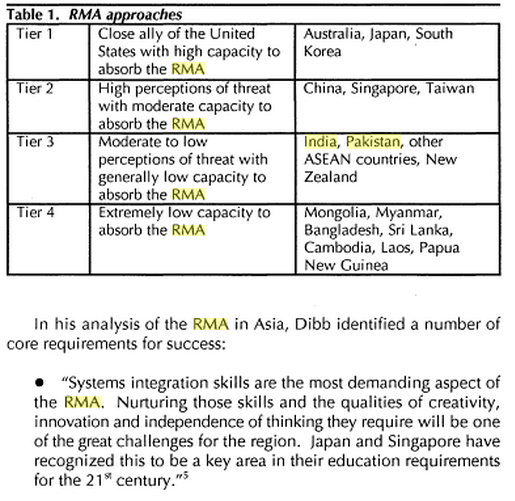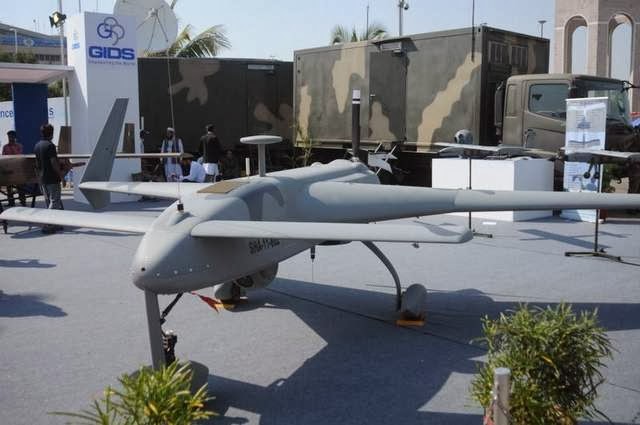PakAlumni Worldwide: The Global Social Network
The Global Social Network
High Tech Warfare in South Asia
What will be the impact of widespread deployment of cyberweapons like Stuxnet worm used by the United Sates to cause extensively physical destruction of Iran's nuclear centrifuges? Will such weapons be used to destroy critical infrastructure of telecommunications, water and power and the economy of the enemy?
Will the boots on the ground be replaced by bots on the ground, in the air and on the water in the future? How autonomous will such bots be? How will the armed drones distinguish between combatants and non-combatants in war?
Will bio-hacking lead to new extremely lethal biological agents developed and deployed by terrorists and rogue individuals and nations?
How is the information technology changing the battlefield awareness with more effective command, control, communications, computers, and intelligence (C4I)?
Are India and Pakistan modernizing their militaries for technology-based warfare?
What are the key ethical issues raised by high-tech warfare? Will it make it easier for nations with advanced technology to start wars with impunity?
 |
| Capacity For Revolution in Military Affairs Source: Laird & Me... |
Vision 2047 host Farrukh Shah Khan discusses these questions with Riaz Haq in the following video:
http://vimeo.com/117678020
Vision 2047: Impact of Revolution in Military Affairs on South Asia from WBT TV on Vimeo.
http://www.dailymotion.com/video/x2fo3yh_how-will-technology-change...
How Will Technology Change Warfare in South Asia- by faizanmaqsood1010
As to the potential cyber component of any future wars between India and Pakistan, its dramatic impact could reverberate across the globe as the computers used in South Asia for outsourced work from the United States and Europe come under crippling attacks from hackers on both sides. Here is how Robert X. Cringeley describes it in a June 2009 blog post captioned "Collateral Damage":
"Forget for the moment about data incursions within the DC beltway, what happens when Pakistan takes down the Internet in India? Here we have technologically sophisticated regional rivals who have gone to war periodically for six decades. There will be more wars between these two. And to think that Pakistan or India are incapable or unlikely to take such action against the Internet is simply naive. The next time these two nations fight YOU KNOW there will be a cyber component to that war.
And with what effect on the U.S.? It will go far beyond nuking customer support for nearly every bank and PC company, though that’s sure to happen. A strategic component of any such attack would be to hobble tech services in both economies by destroying source code repositories. And an interesting aspect of destroying such repositories — in Third World countries OR in the U.S. — is that the logical bet is to destroy them all without regard to what they contain, which for the most part negates any effort to obscure those contents."
Related Links:
Haq's Musings
Pakistan Defense Production Goes High-Tech
Drones Outrage and Inspire Pakistanis
RMA Status in Pakistan
Cyber Wars in South Asia
Pakistan's Biggest Ever Arms Bazar
Genomics and Biotech Advances in Pakistan
India's Israel Envy: What if Modi Attacks Pakistan
Eating Grass: Pakistan's Nuclear Program
-
Comment by Riaz Haq on February 4, 2015 at 4:28pm
-
“Pakistan continues to take steps to improve security of its nuclear arsenal. We anticipate that Pakistan will continue development of new delivery systems, including cruise missiles and close-range ‘battlefield’ nuclear weapons to augment its existing ballistic missiles,” he said, appearing before the House Armed Services Committee.
Lt Gen Stewart told lawmakers that Pakistan’s army and paramilitary forces remain deployed in FATA and Khyber-Pakhtunkhwa.
“Army ground operations in North Waziristan have cleared anti-state militants from most population centres, and we expect the military will continue targeting remaining militant strongholds in 2015.”
He noted that the TTP attack on an army-run school in Peshawar has emboldened military efforts against anti-state militants, including intensified airstrikes against TTP leadership and fighters.
The government and military are also working together to implement a national action plan against terrorism, which includes the establishment of military courts, he added.http://tribune.com.pk/story/833002/us-expresses-confidence-in-pakis...
-
Comment by Riaz Haq on February 26, 2015 at 8:49pm
-
Pakistan air force today inducted the advanced China-built Karakoram Eagle AWACS aircraft, capable of detecting hostile aerial and sea surface targets far before ground-based radars regardless of their height.
Pakistan Air Force (PAF) said the new aircraft were inducted into its premier No 4 Squadron at ceremony held at an operational PAF base in Karachi.
"With the addition of AWACS, Pakistan air defence is now able to look deeper in enemy territory, be it land or sea," the air force said.
The Karakorum Eagle Airborne Warning and Control System (AWACS) can detect aerial as well as sea surface targets at a fairly long distance regardless of their height, it said.
The aircraft maintains link with ground command and control centres to provide comprehensive air picture.
"After an early detection, AWACS can direct own fighter aircraft to intercept or neutralise the emerging threat, well before it can threaten our national assets. AWACS ability of detecting sea targets would also enhance the capabilities of Pakistan Navy," it said.
Prime Minister Nawaz Sharif, who was the chief guest at the induction ceremony, said the PAF has always proved equal to the task even in the most challenging times and has measured up to the expectations of the nation.
----------
Air Chief Marshal Tahir Rafique Butt termed the induction a significant moment for the PAF.
"Re-equipping the Squadron with this state-of-the-art aircraft will enable PAF to effectively counter all threats against Pakistan's aerial frontiers and add a new dimension to the National security," he said.
"Induction of Karakoram Eagle AWACS would revolutionise PAF's operational concepts. With its induction, PAF is transforming into a modern versatile and capability based force," Butt said.
http://www.business-standard.com/article/pti-stories/pak-inducts-ch...
-
Comment by Riaz Haq on August 16, 2018 at 10:45am
-
China-Pakistan satellite nexus affects India’s war strategy
http://www.dnaindia.com/analysis/column-china-pakistan-satellite-ne...
China’s commercial interests in the South Asian space market have expanded into the security sphere, with it launching Pakistan Remote Sensing Satellite-1 (PRSS-1). This is ostensibly a crop and resources monitoring platform, but the military utility is obvious. The satellite was built by China, which is already investing in a high resolution remote sensing constellation “Yaogan”, possessing sophisticated electro-optic and radar sensors for military purposes. These satellites play a critical role in China’s Anti-Ship Ballistic Missile project, feeding time sensitive information for the missile launch and manoeuvring.
Pakistan possessing such an advanced platform disrupts India’s battlefield superiority to an extent. A two-front war would stress allocation of resources and any qualitative enhancement of enemy’s forces would jeopardise India’s strategy. By acquiring satellite information, Pakistan will enhance its sensor to shooter connectivity and make precision strikes against Indian targets. This makes Pakistan’s tactical nuclear weapons more deadly against advancing Indian Army columns. Pakistan is already acquiring attack aircraft and warships from China, in addition to adopting its BeiDou GPS network that can give 10 cm accuracy on restricted military signal.
The utility of GPS for military operations was well established by the United States, during the Gulf War and India’s inadequacy during the Kargil conflict. The use of Cartosat imaging for surgical strikes demonstrates the role played by remote sensing satellites. Therefore, Pakistan’s enhancement of its military capabilities, using space assets must be dominated by India improving its network-centric capabilities, including satellites. The inclusion of private industry in satellite manufacturing and launch vehicle operations should help remove the bottlenecks and improve India’s space advantages qualitatively and quantitatively.
Comment
Twitter Feed
Live Traffic Feed
Sponsored Links
South Asia Investor Review
Investor Information Blog
Haq's Musings
Riaz Haq's Current Affairs Blog
Please Bookmark This Page!
Blog Posts
Pakistani Prosthetics Startup Aiding Gaza's Child Amputees
While the Israeli weapons supplied by the "civilized" West are destroying the lives and limbs of thousands of Gaza's innocent children, a Pakistani startup is trying to provide them with free custom-made prostheses, according to media reports. The Karachi-based startup Bioniks was founded in 2016 and has sold prosthetics that use AI and 3D scanning for custom designs. …
ContinuePosted by Riaz Haq on July 8, 2025 at 9:30pm
Indian Military Begins to Accept Its Losses in "Operation Sindoor" Against Pakistan
The Indian military leadership is finally beginning to slowly accept its losses in its unprovoked attack on Pakistan that it called "Operation Sindoor". It began with the May 31 Bloomberg interview of the Indian Chief of Defense Staff General Anil Chauhan in Singapore where he admitted losing Indian fighter aircraft to Pakistan in an aerial battle on May 7, 2025. General Chauhan further revealed that the Indian Air Force was grounded for two days after this loss. …
ContinuePosted by Riaz Haq on July 5, 2025 at 10:30am — 6 Comments
© 2025 Created by Riaz Haq.
Powered by
![]()

You need to be a member of PakAlumni Worldwide: The Global Social Network to add comments!
Join PakAlumni Worldwide: The Global Social Network